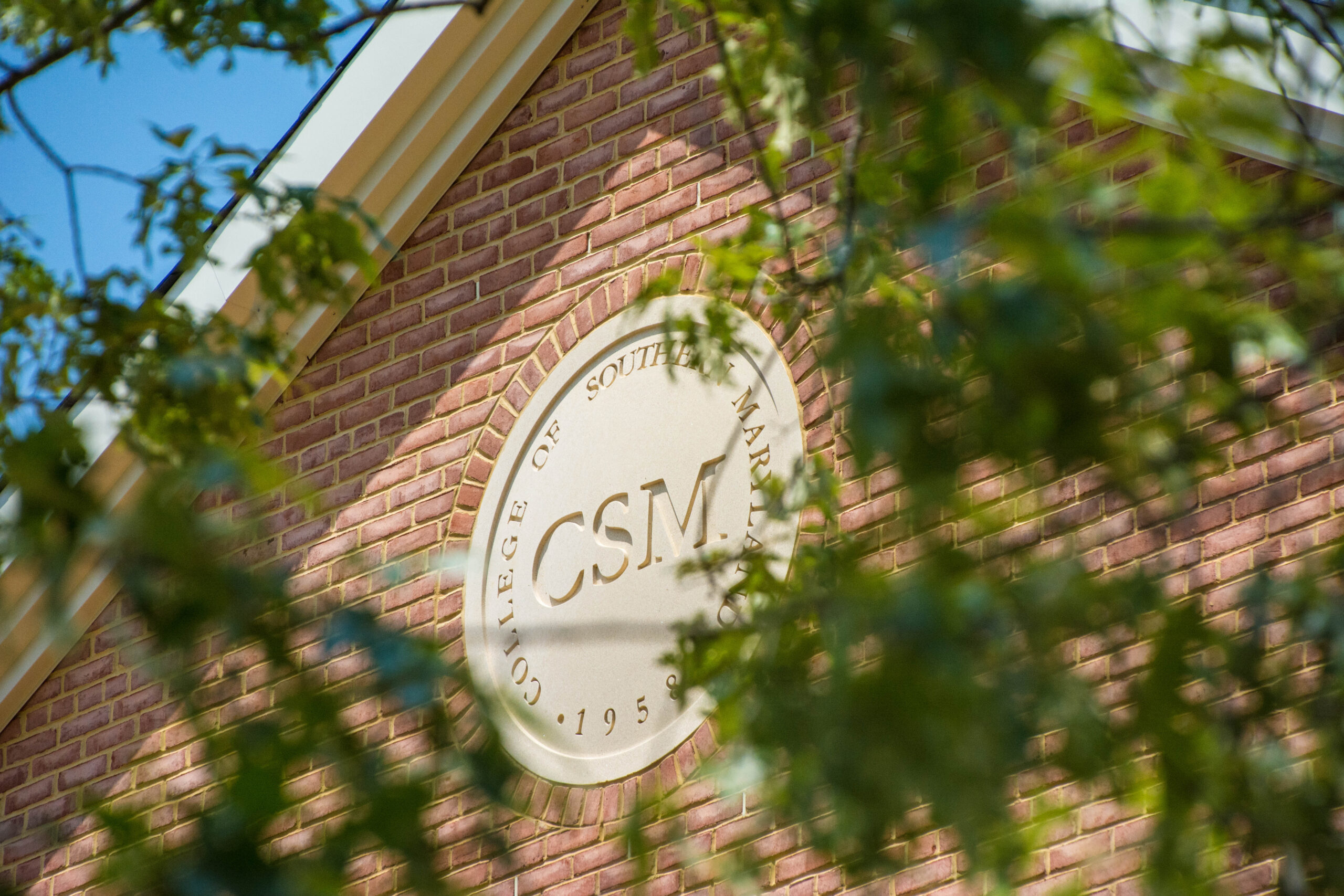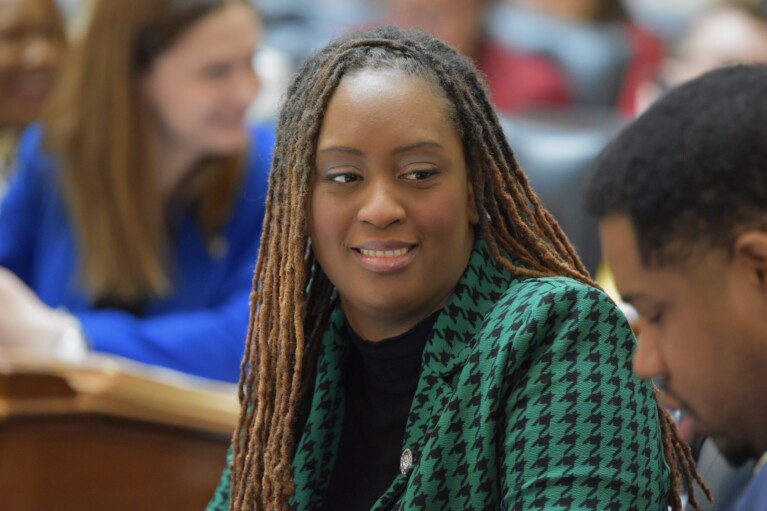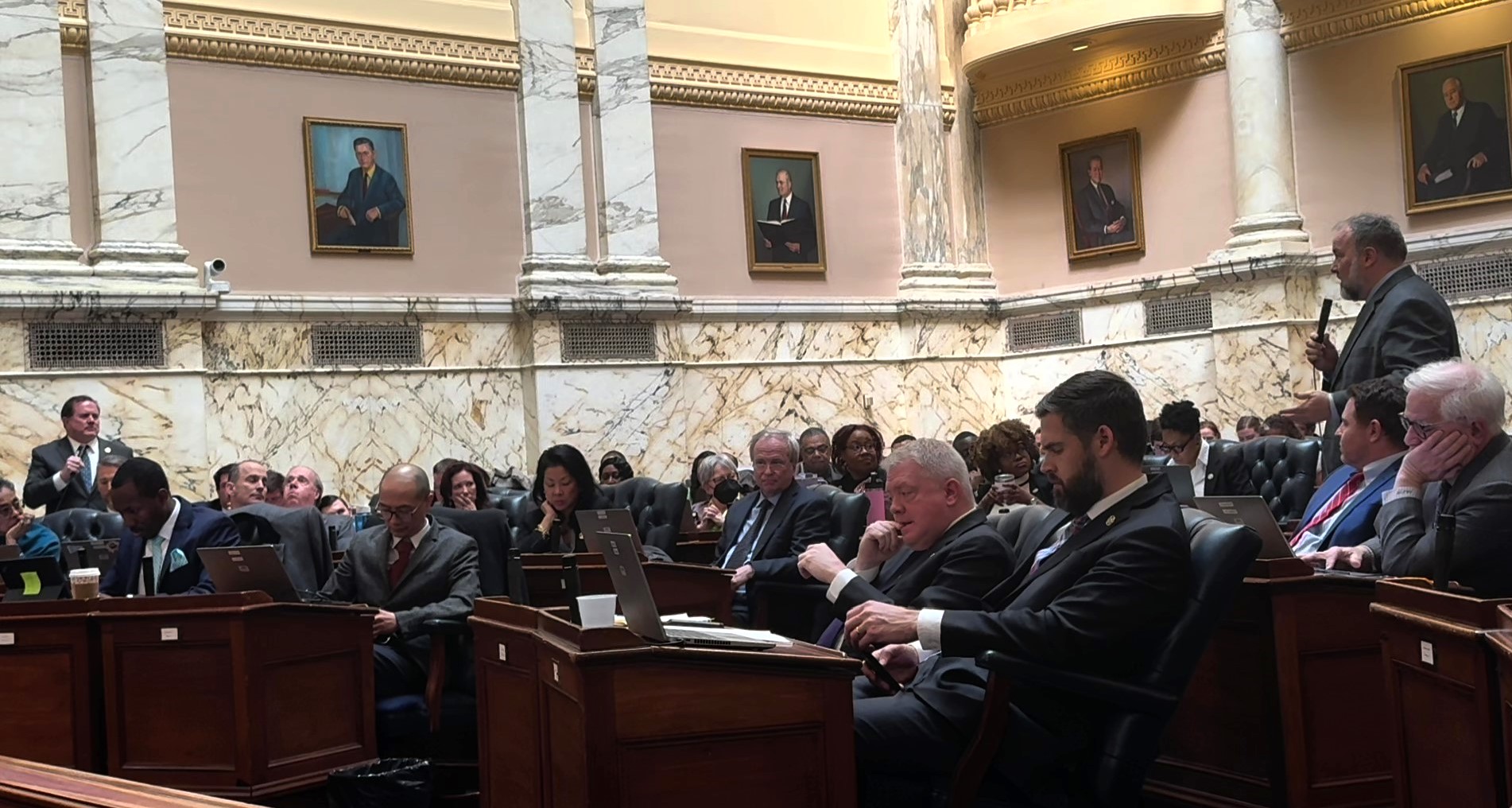Senator Stands Alone in Fight Over Regional Community College

Charles County is one of the fastest-growing and most rapidly changing jurisdictions in Maryland. Once a rural area like its Southern Maryland sisters, St. Mary’s and Calvert counties, Charles County now stands alone in the region, and has more in common with the heavily populated and more congested suburban jurisdictions to its north.
Charles County has also changed demographically and politically. While Calvert and St Mary’s remain mostly white bastions of conservatism, Charles is now over 50% Black and reliably Democratic.
Occasionally, Charles County’s primary state senator, Arthur Ellis (D), who represents all but a piece of the county, also stands apart.
He wasn’t part of the county’s Democratic establishment in 2018 when he upset long-serving Sen. Thomas M. “Mac” Middleton, the powerful chairman of the Finance Committee, in the Democratic primary. And he’s not always inclined to adhere to the niceties of politics.
Now, Ellis has introduced legislation that puts him at odds with his fellow Charles County elected officials and with a key local education institution as well.
Ellis has introduced a bill that would break up the College of Southern Maryland, a community college with campuses in all three Southern Maryland counties, and use the college’s La Plata campus to create a new Charles County Community College. Ellis sees the legislation as addressing the changing imperatives and demographics in his home jurisdiction.
“Charles County has grown tremendously — the third-fastest growing county in Maryland,” he said. “It’s grown in diversity — more than 50% Black. Coming at it that way, the College of Southern Maryland isn’t serving the community the way it ought to be.”
But Ellis is motivated by more than just migration patterns and shifting demographics and economics. He has a series of criticisms of the college administration, from closing an aquatic center on its La Plata campus to shifting STEM courses and nursing courses to the campuses in Prince Frederick and Leonardtown, in the other two counties, that he is hoping to address with his legislation.
College officials dispute some of Ellis’ claims and have answers for some of the others. Needless to say, they are opposing his bill.
And his fellow Southern Maryland officeholders are having none of it. In January, the Charles County Board of Commissioners voted unanimously to oppose Ellis’ measure. And six members of the Southern Maryland legislative delegation — Sens. Jack Bailey (R) and Michael Jackson (D) and Dels. Edith Patterson (D), Debra Davis (D), Susie Proctor (D) and CT Wilson (D) — wrote to College of Southern Maryland President Maureen Murphy, vowing to work to defeat the legislation in Annapolis.
“The proposed legislation is counter to our position and does not reflect our stance on the successful continuation of this phenomenal public regional community college,” the lawmakers wrote. They added that they were “unaware of this precipitant action and were not asked to participate in a discussion, offer insights or input.”
In a statement, the college said Ellis’ bill effectively amounts to the “dismantling” of the institution.
“CSM mirrors Southern Maryland’s identity and we strive always to prepare our students for this region’s workforce, and to help them have a better quality of life,” the statement said. “We don’t see county boundaries when it comes to our transformative work or our commitment to helping students succeed. Like everyone else, we were blindsided by Sen. Ellis’ introduction of SB136.”
College administrators also took issue with Ellis’ suggestions that important courses are no longer being offered at the La Plata campus. And they said the aquatics facility is closed until later in the year because officials concluded earlier in the pandemic that several athletic facilities needed upgrading.
The college’s current structure was established about 22 years ago, after opening in 1958 as Charles County Community College. Outposts opened in St. Mary’s County in 1978 and in Calvert County in 1980. As of Tuesday, the school had 4,729 enrolled students: 1,891 from Charles County, 1,411 from St. Mary’s, 1,137 from Calvert, and 290 from other jurisdictions.
Under the college’s current governing system the governor appoints nine trustees, three from each county, and the Senate confirms those picks.
But in Ellis’s view, that structure favors the two rural counties and effectively short-changes and disenfranchises the biggest Southern Maryland county and the one with a majority-Black population. The trustees from Calvert and St. Mary’s counties, he notes, are white male Republicans.
“Guess who gets outvoted then?” Ellis said.
“But it’s not just a Black and white issue,” he continued. “It’s not just about race. As Charles County has grown in size and diversity, resources are being pulled out. How do I get these resources back?”
Ellis said he decided to pursue the legislation after hearing from constituents — and CMS faculty members — who reached out to him to describe “missing programs and missing services.” He said that under his “revenue-neutral” legislation, all the programs, facilities, faculty and staff at the La Plata campus would come under the control of the new community college he envisions establishing. Faculty members and other workers would be able to keep their existing wages, benefits and pension plans.
Ellis has introduced companion legislation that would direct the University System of Maryland to open a regional education center, offering courses from the University of Maryland and other institutions, in Charles County. USM opened a new campus in California, in St. Mary’s County, last fall, around the same time the University of Maryland Global Campus moved from Waldorf, in Charles County, to a space at the College of Southern Maryland campus in La Plata, under the name the Universities at La Plata.
Both bills will be up for a hearing next Wednesday in the Senate Education, Health and Environmental Affairs Committee, where Ellis serves.
Ellis said he realizes his legislation may be a non-starter in this session, but he hopes that initiating the conversation now can produce results a few years down the line. And he’s unapologetic about the fact that he may have offended fellow Southern Maryland elected officials and community leaders.
“It’s a lot of drama — oh my lord,” he said. “But this is not a messaging bill. I’m serious about standing up for these goals. We own, the taxpayers own, those facilities in Charles County.”




 Creative Commons Attribution
Creative Commons Attribution